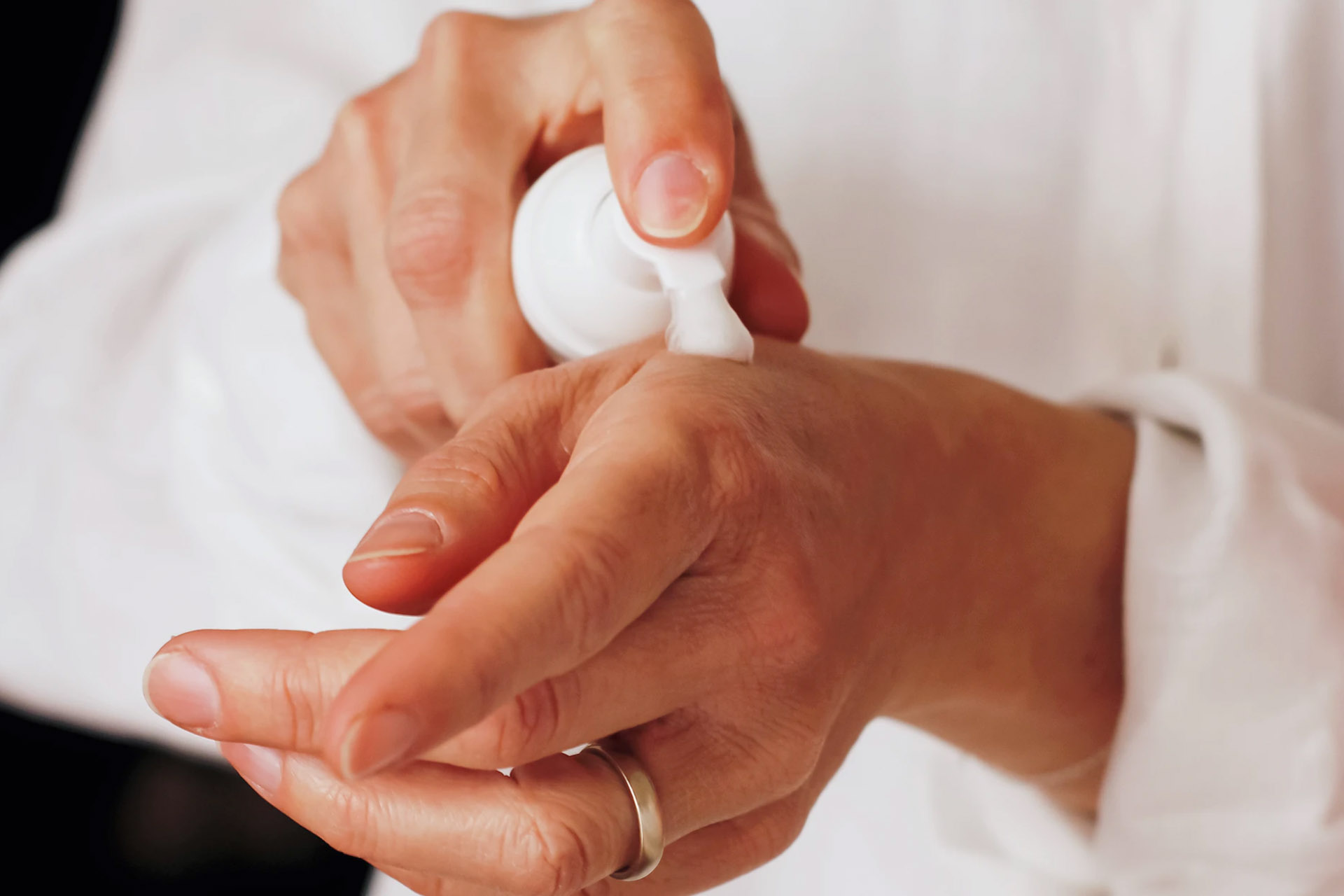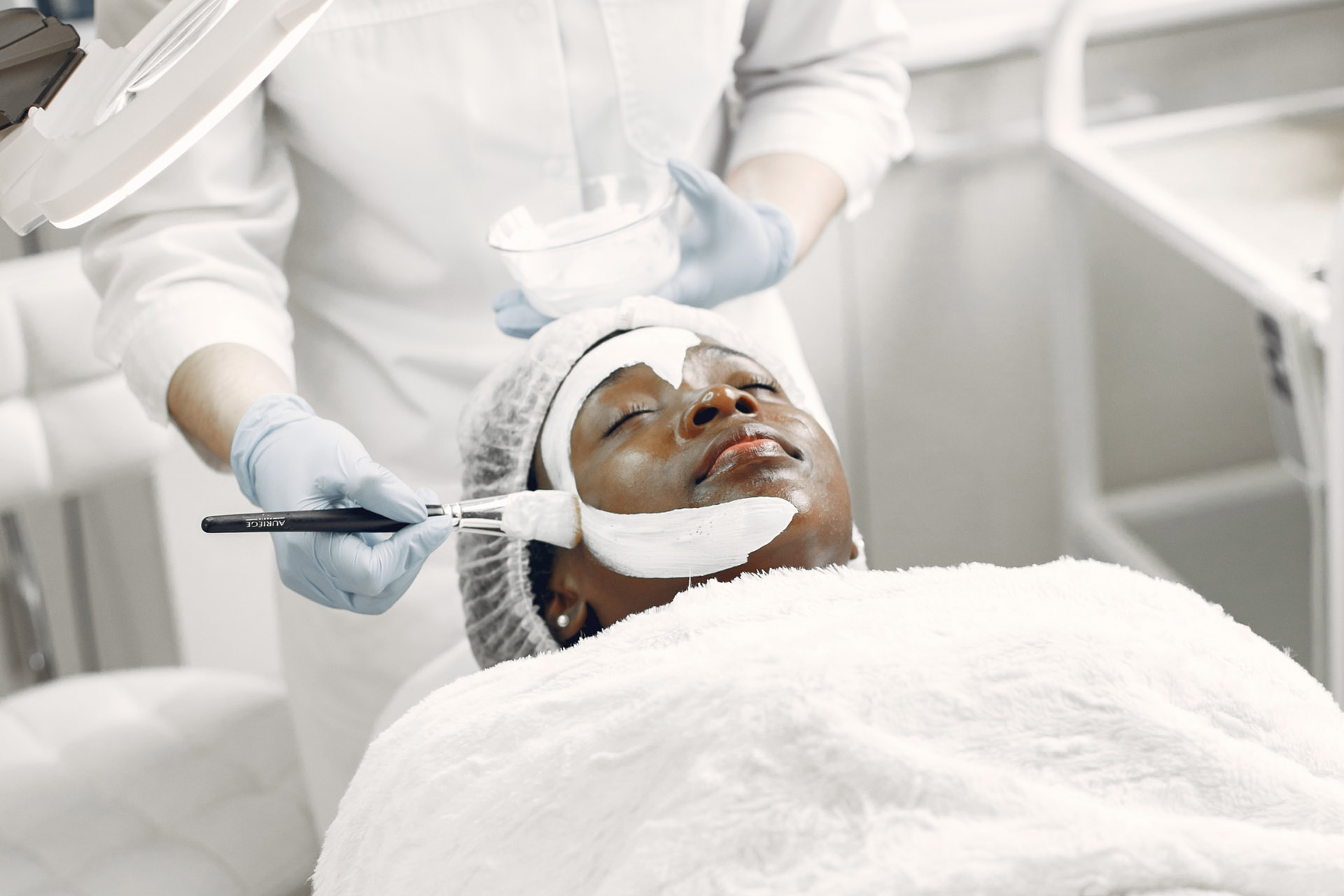Dry vs. Dehydrated Skin: What’s the Difference?
Dry skin happens due to a lack of oil. Dehydrated skin, on the other hand, happens due to a lack of moisture or water. While the symptoms may seem similar, there are key differences in determining whether you have dry or dehydrated skin.
Keep reading to find out more about dry vs. dehydrated skin—and how to easily tell the conditions apart!
Dry vs. Dehydrated Skin Symptom Checker
| Dry | Dehydrated |
|---|---|
| Itching | Itching |
| Feeling of tightness | Dry lips and mucosa |
| Cracks or fissures | Lack of elasticity |
| Scaling and coarse texture | Sunken eyes |
| Redness | Fine lines and wrinkles |
| May include inflammation | Dullness |
There is also a simple “dehydrated skin test” that one can do to know whether you have dry or
dehydrated skin. Called the pinch test, it is done by pinching the skin on the back of your hand for a few seconds, letting it go, then observing how quickly it bounces back to shape. If there is tenting of the skin or it takes longer than usual for your skin to snap back, you likely have dehydrated skin.
How to Treat Dry Skin
Since dry skin lacks oil, treatment for dry skin involves replenishing the skin’s lipid barrier. This involves applying lipids and avoiding products that strip oil off the skin in order to prevent the recurrence of treated symptoms.
What Causes Dry Skin?
Dry skin can be caused by both internal and external factors. Usually, it is due to things that can disrupt the skin’s protective layer, like cleansing agents, unsupervised use of retinoids, lipid-lowering drugs, birth control pills, prolonged use of topical corticosteroids, and radiation.
But sometimes, the cause is internal. Some people who have vitamin A and vitamin D deficiencies tend to have dry skin. Hormonal changes during pregnancy, kidney disorders, and inflammatory skin diseases like dermatitis, eczema and psoriasis can also cause dryness.
Tips for Dry Skin
There are several ways to get instant and long-lasting relief from dryness. Most dermatologists recommend the following:
- Reducing exposure to harsh cleansers;
- Gentle cleansing with cold or lukewarm water;
- Avoiding soaps and using skin-friendly cleansers instead;
- Applying occlusive (oil-based or ointment) moisturizers immediately after cleansing to prevent moisture loss;
- Using emollients (dimethicone, petrolatum, propylene glycol) to protect gaps or fissures in the skin;
- Using ceramide-rich moisturizers to help repair the skin’s lipid barrier;
- Eating food that helps the body produce ceramides (such as dairy, soybeans, eggs, wheat germ, and brown rice;
- Using gentle sun protection; and
- Accurately following prescriptions for underlying health conditions.

How to Treat Dehydrated Skin
Treatment of dehydrated skin should involve adding hydration and preventing moisture loss.
What Causes Dehydrated Skin?
Dehydrated skin, like dry skin, can be due to endogenous or external causes. Health issues that result in dehydrated skin could be hormonal or metabolic in nature. It can also be due to insufficient fluid intake.
External factors that can cause dehydrated skin include taking diuretics, exposure to harsh environments or weather, tobacco use, and too much caffeine, among others.
Tips for Dehydrated Skin
Hydrating the skin typically involves dietary and lifestyle changes. Some remedies for dry skin are also effective in relieving dehydrated skin. You can hydrate your skin by:
- Drinking adequate amounts of water, especially when working out;
- Applying humectants like urea and glycerin;
- Reducing coffee, tea, and alcohol consumption;
- Avoiding harsh temperatures;
- Using humidifiers;
- Applying water-based moisturizers to replenish lost moisture and following with occlusives to prevent moisture loss;
- Stopping use of harsh facial scrubs that can cause micro-injuries;
- Getting enough sleep to help maintain good skin health; and
- Following prescriptions for underlying health conditions.
Supervised Treatments for Dry and Dehydrated Skin
The best way to treat dryness or dehydration is to address the root of the problem. While some symptoms can easily be treated with over-the-counter products, others require more advanced care.
Medical-Grade Skincare
Medical-grade skincare can do wonders for both mild and severe cases of dryness or dehydration. These topical products usually target concerns that typical over-the-counter remedies can’t fix. They are also usually more concentrated, hence are much more potent and can deliver results faster than over-the-counter products.
In-Clinic Facials
Hydrating facials, such as the HydraFacial, can help increase hydration in the skin by combining the effects of several products and treatments in one.
Unlike a regular facial, a hydrating facial uses water pressure to gently remove dead skin cells and unclog pores. It also includes the application of special serums and potent peptides using special equipment to deeply moisturize dehydrated skin.
Chemical Peels
It might sound counterintuitive, but gentle chemical peels can actually help combat dullness as they allow hydrators and moisturizers to penetrate better.
To determine the appropriate procedure for you, a dermatologist will usually assess your skin first, then give you preparation instructions. Most chemical peels involve post-treatment care, so it’s best to schedule them weeks before an important event.

Give Your Skin the Care it Deserves
Performing a dry vs. dehydrated skin self-evaluation can be challenging—that’s why consulting a skincare expert is still the best way to assess and treat your skin.
You can rely on APT Medical Aesthetics’s FREE consultations with dermatologists and licensed aestheticians to help you get a proper evaluation. Contact us today to start getting your best glow!
BACK TO ALL ARTICLES


 Oakville
Oakville (905) 849-8646
(905) 849-8646 info@aptmedspa.com
info@aptmedspa.com









